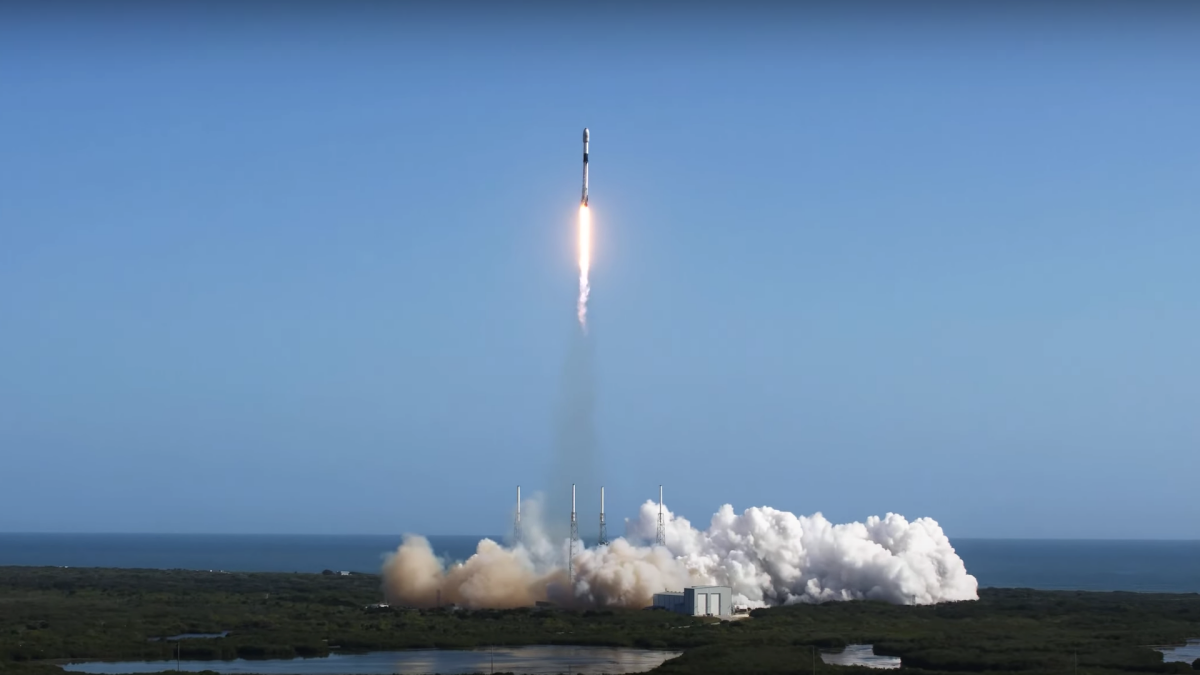SpaceX launched another round of satellites for its Starlink system on Monday, weeks after a bunch burned up in Earth’s atmosphere.
After Sunday’s launch was delayed “due to recovery weather,” the mission successfully launched on Monday at 9:44 a.m. ET, with a Falcon 9 rocket lifting off from the Space Launch Complex (SLC-40) at Cape Canaveral Space Force Station in Florida.
The mission sees 46 more satellites deployed to low Earth orbit as part of SpaceX’s “high-speed, low latency” satellite internet service, Starlink, currently serving over 140,000 users across the globe.
The launch went off seemingly without a hitch, with the rocket’s first stage booster landing on the A Shortfall of Gravitas droneship in the Atlantic Ocean at 9:54 a.m. — that’s a mere 10 minutes after liftoff and stage separation. It’s the sixth launch for the Falcon 9 booster, which has previously led five Starlink missions, along with the Crew Demo-2, ANASIS-II, CRS-21, Transporter-1, and Transporter-3 for SpaceX.
The launch of this batch of satellites comes mere weeks after around 40 SpaceX satellites burned up in Earth’s atmosphere in early February thanks to a geomagnetic storm caused by a coronal mass ejection (a powerful burst of energy from the sun). According to SpaceX, the deorbiting satellites “will reenter or already have reentered the Earth’s atmosphere,” but they “pose zero collision risk with other satellites and by design demise upon atmospheric reentry — meaning no orbital debris is created and no satellite parts hit the ground.”
The 46 new Starlink satellites were deployed into low Earth orbit about one hour and three minutes into the mission, joining the reported 1,500 already in orbit. SpaceX CEO Elon Musk wants to send a total of 42,000 satellites into orbit, which could be great for internet speed, but has long sparked concerns around space junk.
SpaceX confirmed the successful deployment of the satellites on Twitter.
It’s the third Starlink satellite launch for the company this year alone following one in early February and January, and they always look like something out of a sci fi fantasy.
